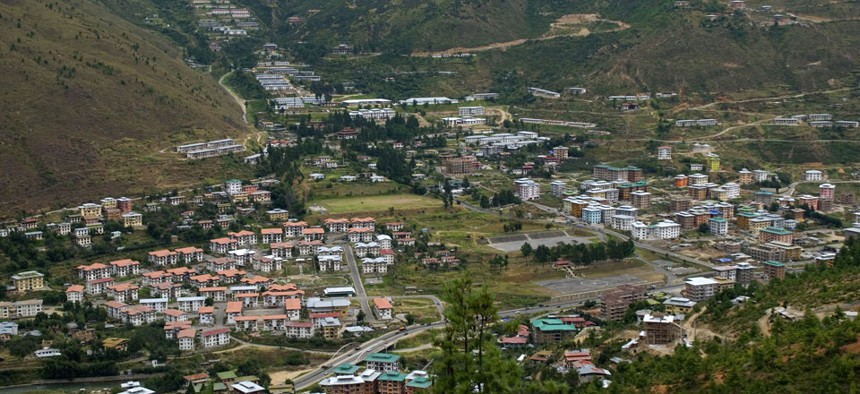Bhutanese Government Greens Its Capital Fleet

Thimphu is Bhutan's capital city. Attila JANDI/Shutterstock.com
Thimpu is replacing official vehicles with electric Nissan Leafs.
A tiny Himalayan kingdom that’s long been fiercely protective of its ancient Buddhist traditions wants to transform its capital into an electric car city. Tshering Tobgay, prime minister of Bhutan, said this week that the city of Thimpu would start replacing all official government vehicles (paywall) with the Nissan Leaf. Taxis and private cars will eventually be replaced with electric cars made within the country.
Bhutan, known as something of a real-life Shangri-La, has been hailed as a model of holistic development for years. In the 1970s, worried over the focus developing countries place on economic growth, Bhutan made “gross national happiness” (GNH), which takes into account measures of the environment and people’s well-being, its priority. Bhutan has pledged to stay carbon-neutral country and requires that 60% of the country always remain forested. It enforces a pedestrian day once a month, barring private cars from the roads. (At the same time, the country also faces a slightly slowing economy—4.6% last year compared to the country’s average growth of 9% between 2002 and 2008—and what some say is an unhealthy dependence on its trade partner, India.)
Bhutan partly relies on its insularity to achieve all this. Tourism is restricted—all visitors must be part of tour groups—for fear of the destruction of traditional values. Foreign imports like private cars are also banned, in part because of a shortage of Indian rupees that’s led to tightened import controls to save the local currency. (The ban has been good for second-hand car dealers selling vehicles already in the country from India and China.) That’s what’s caused the economy to slow, according to politicians who say the GNH philosophy distracts from the country’s real problems.
Read the full story at Quartz.






